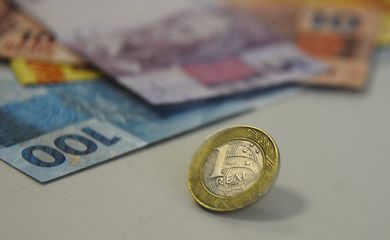Brazil GDP expected to drop 3.5% in 2016

Brazil's Gross Domestic Product (GDP) should close out the year down 3.5%, and not 4%, as had been previously forecast. The projection was brought forward Monday (Jun. 13) by Silvia Matos, technical coordinator for the Macro Report at the Brazilian Institute of Economics of the Getulio Vargas Foundation, during the 2016 Seminar for Conjectural Analysis, promoted by the same institute.

The prediction comes in line with the forecast released earlier by the Central Bank, which was based on a study on financial institutions. The survey forecast a decline of 3.6% of the GDP in 2016. Previously, the market projection had pointed towards a fall of 3.71%.
In Silvia Matos's view, despite the revision, the reduction in the GDP is still significant, but some sectors are showing signs of improvement, chief among which the manufacturing industry. On the other hand, she says, other sectors are facing a bleak scenario, like services, and investment and families' consumption are below the required levels. “When we look at all these figures, we believe that 2017 will also be a weak year. It'll be better than this year, but we can't foresee a solid 2% or even 1% growth,” she noted.
In addition to the reduction in the GDP, inflation is still a major problem, as it has proved resistant, the coordinator says. Inflation prevents the interest rate from going down, and the economy from resuming growth as a result. In her view, the center of the target for the inflation (4.5%) will not be reached before 2018. “In order to hit [the target] in 2017, we'd need to have a recession still in 2017, which is not something anyone should wish for. And also, since it's a lot of risks we're facing, it'd be a little hasty to say we'll reach the center of the target in 2018,” she argued.
The coordinator believes that the uncertainty brought about by the political scenario makes growth recovery difficult, as executives wait for the situation to become clearer before they can make decisions on investment. The scenario will only be reversed after the impeachment case against suspended President Dilma Rousseff is tried, she says.
“This would at least help dispel the current uncertainties. Only after that happens can we really ascertain whether the government will have the political conditions to carry out the fiscal overhaul necessary to keep the still-increasing public debt stable. If we manage to have a policy for curbing expenditures, even if it takes a few years, we'd manage to stabilize our debt,” she maintained.
Translated by Fabrício Ferreira
Fonte: Brazil GDP expected to drop 3.5% in 2016




